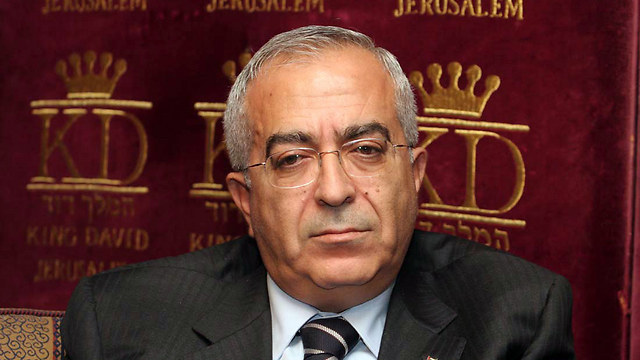
Revisiting the Jordan option
Op-ed: The Palestinian leadership has proven itself averse to actively running a state and founding a sovereign Palestinian country. Therefore, the only option left is to return the West Bank to Jordan.
With the 50th anniversary of the occupation of the West Bank coming up, the time has come to return to the idea which guided the opponents of annexation in the 60s and 70s—the Jordan Option, or the Jordanian-Palestinian option.
Who am I to decide whether or not the Palestinians have defining cultural and nationalistic characteristics to differentiate it from the rest of the Arab world? The nationalism expressed by these popular Palestinian nationalist groups is unclear even to the best of researchers. What is clear, however, is that based on the actual behavior of the Palestinians, the Palestinians actually don't really want a country.
If they really wanted one, they could have had one by now. Israel could not have effectively blocked deep and genuine aspirations for national sovereignty for a half century. Israel isn't an empire.
Palestinian aversion to setting a defined government was best seen with Yasser Arafat and his colleagues in the PLO, who were drawn to the idea of national liberation after absorbing the theory in Soviet universities. And with the dissolution of the USSR, the search for an independent Palestinian state in the West Bank was passed over to the global West, which adopted the cause without any reservations and which didn't delve into what the Palestinians truly wanted.
Israel, for its part, foolishly blocked the development of foundations for a Palestinian state instead of encouraging them and made it difficult for the Palestinians to build a sustainable economy.
However, while the vast majority of Israeli politics has come to terms with the fact that the solution needs to be "two states for two peoples," the Palestinians have disassociated themselves from the idea unequivocally.
Even during the second intifada, the Palestinian leadership did not appear to be attentive to the will of the people, and showed no real movement towards establishing an independent Palestinian state.
End the occupation? Yes, absolutely. But what will come afterwards, and what will be established in its place? We will wait and see.
The impeachment of Salam Fayad, who was the most stable and effective prime minister the Palestinian Authority ever had, stemmed from his being such a staunch supporter of an independent Palestinian state and due to his prudent actions to achieve this by attempting to create a viable economy, all of which went against the wishes of those at the top.
The strengthening of radical religious movements has completely destroyed any chance of a political solution to the Palestinian issue. Take, for example, the regular excuses of the PA to not even accept provisional borders as was supposed to happen under the framework of the "roadmap for peace."
This evasion isn't accidental and isn't related to resisting one power or another. It's tied to the understanding that the idea of an independent Palestinian state isn't the magic answer for the majority of the Palestinian people. It's likely that this idea was never widely accepted and is largely anachronistic.
If not an independent sovereign state, then what? Many in the Palestinian leadership use the American phrase "more of the same." There will be a continuation of Israeli control, but it will be weaker, more restrained, less oppressive, and under intense international scrutiny.
There are other Palestinians who believe that the demographics will work in their favor: On the one hand, the number of Jewish settlers in the West Bank will mitigate any option of complete Israeli withdrawal, and on the other hand, there will be an effortless natural increase in the number of Palestinians who live in Greater Israel.
Will Palestine be a binational state? No, it will be an Islamic state with a significant Jewish minority. But the majority of the Palestinians, and the Jews, haven't asked for an alternative to a Palestinian state within the West Bank.
For its welfare and for its future existence, Israel must put the Jordan option on the table. Israel must announce its willingness to withdraw from 98% of the land it conquered in the Six Day War and return it to the Jordanians. While it's true that the Arab League decided to expropriate control of the West Bank from Jordan to the PLO in the 1980s, in the 30 years that have passed, the PLO has done almost nothing to further the cause of an independent Palestinian state and economy. Therefore, this option must be seen as voided, and as an option which doesn’t take into account the will of the Palestinian people.
The Jordanian monarchy is worried about a federation or confederation with the Palestinians, but there is no other solution on the horizon. Deadlock is worse than anything.












